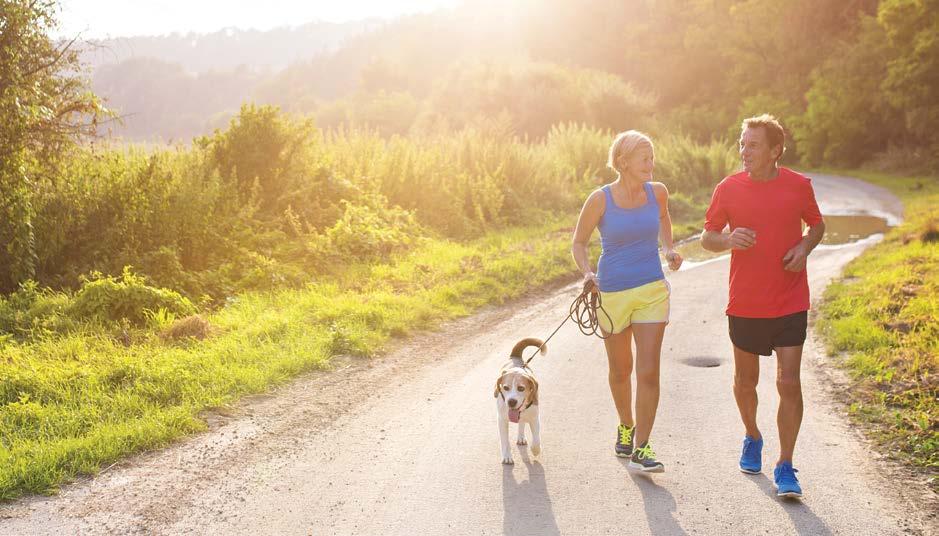
2 minute read
Nature heals .................................................Jennifer Merrick
Nature heals
And promotes physical and mental health
BY JENNIFER MERRICK
“I know for a fact the healing power of nature,” says Laura Sitting Eagle, an interpreter at Blackfoot Crossing, a historic park dedicated to preserving Siksika Nation’s culture and traditions. “The closer you are to the earth, the more healing power. We need nature to feel good about ourselves.”
While many cultures like the Siksika Nation have long recognized the importance of the natural world to our physical and mental health, scientific studies substantiate these benefits. Research from the University of Michigan, for instance, found that an older adult’s attention span increased by twenty percent after spending only an hour outdoors. Energy levels and memory retention also went up. Other studies found that time in nature reduces depression, increases happiness hormones, boosts the immune system, lowers blood pressure. and relieves anxiety. The benefits are so impressive that word is spreading. For the past decade, ParkRx, a nonprofit organization, has liaised with healthcare providers and governmental parks to offer a simple prescription: take time in nature two hours per week, in twentyplus minute sessions. The Japanese have shinrin-yoku, which loosely translates to forest bathing. Many resorts offer meditative excursions with trained practitioners. But none of that is needed, just walking in a natural environment and consciously connecting to the surroundings. For Jacob Rodenburg, nature sommelier and author of The Book of Nature Connection, this means using all our senses. “The average child spends seven hours a day on screens and for adults it’s closer to ten,” he says, explaining that screens require only sight and some hearing, which results in sensory deprivation, whereas fully experiencing nature requires all senses. “We need nature to feel that we belong to the natural world and connect to something bigger than ourselves.” Here are some simple ways to add nature to your life: • Find your own special place, perhaps a local park, to visit regularly. • Bring nature into your home with plants and pictures of natural landscapes. Get a birdfeeder and watch as the wild comes to you. • Exercise outdoors when possible, even if it’s just a walk around the block. (Sixty to seventy percent of Western New Yorkers are deficient in Vitamin D!) • Encourage the kids in your life to leave devices at home and venture into natural spaces. In Jacob’s book, he includes seventy sensory activities to try outdoors. • Rewild your backyard. Shrink your lawn and replace it with native plants that attract pollinators and other beneficial creatures. • Invite family and friends on a hike or snowshoe excursion close to home. • Join an outdoors club. • Begin a hobby you can do outdoors like birdwatching, gardening or Nordic skiing. • Include nature in your travel plans. Whether it’s a stroll in a city’s green space or a stay in a resort close to nature, make a point of including a dose of the outdoors in your itinerary. FY
Jennifer Merrick is an awardwinning freelance writer, photographer, and avid traveler based in Toronto. January 2023 | www.foreveryoungwny.com 11






